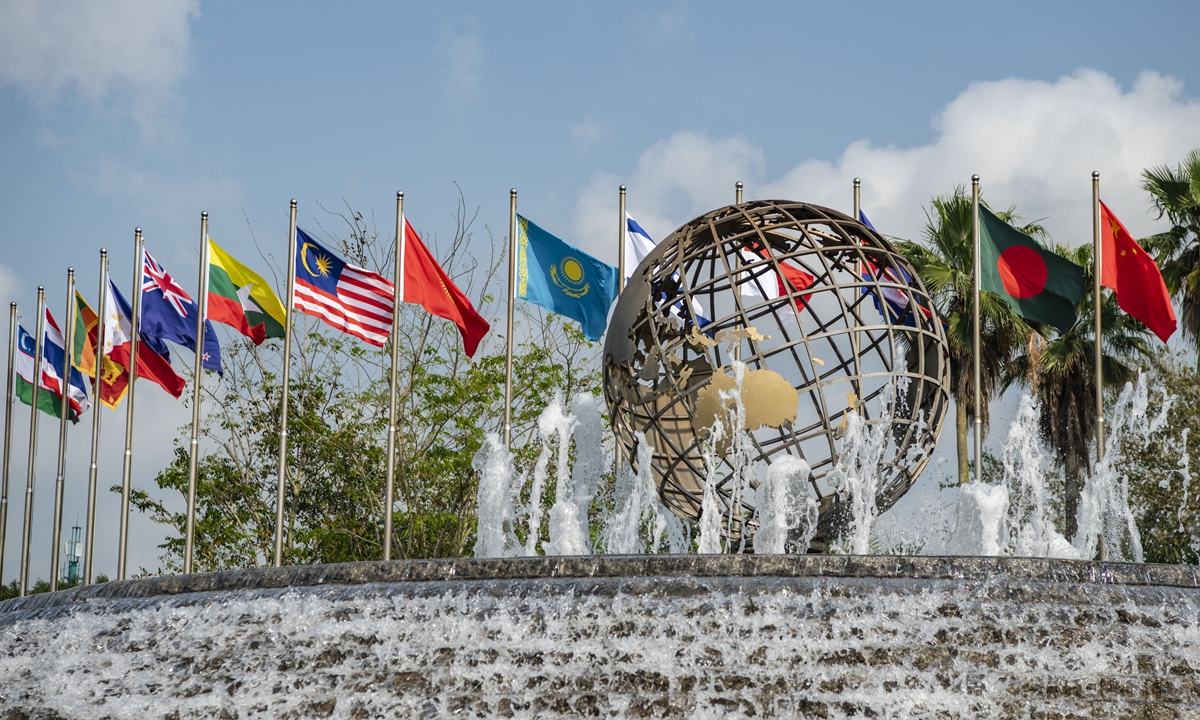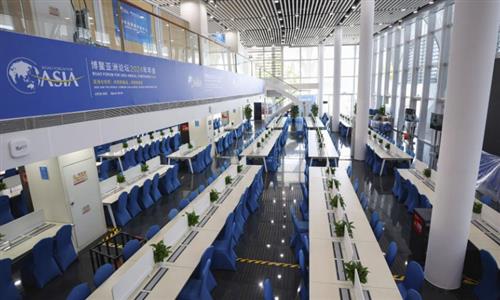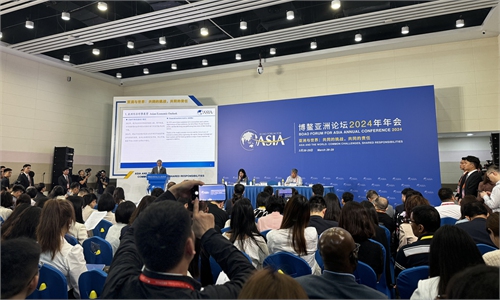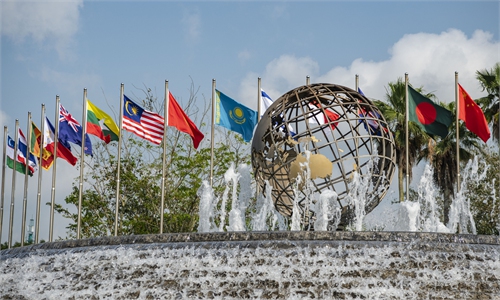Alternative Asian supply chain to replace China not feasible, experts at Boao say
Nation remains regional hub in global value chain: report

This photo taken on March 25, 2024 shows the Boao Forum for Asia (BFA) International Conference Center in Boao, South China's Hainan Province, is ready for the upcoming forum. The BFA Annual Conference 2024 will be held from March 26 to 29 in Boao, focusing on how the international community can work together to deal with common challenges and shoulder their responsibilities. Photo: cnsphoto
An alternative Asian supply chain to replace China, as some Western media outlets have suggested, is not feasible, said an author of a report released on Tuesday by the Boao Forum for Asia (BFA), which convened its 2024 conference in Boao, a resort town in South China's Hainan Province.
According to the forum's Asian Economic Outlook and Integration Progress flagship report, China maintains its position as a regional hub in the global value chain, despite increasing risks in global trade and investment.
Lin Guijun, former vice president of the University of International Business and Economics, also an author of the report, told the Global Times on Tuesday that although there have been some changes in the global value chain and supply chain, it is not feasible to establish an alternative supply chain that can replace China's status in Asia.
The Economist, a UK-based magazine, recently came up with an idea Altasia, a shorthand for the alternative Asian supply chain, which it believed had the potential to provide alternatives to China's supply chains in the coming years.
Lin noted that there have been some shifts in industrial chains, but the overall volume is small.
Despite the changes, China maintains its dominant position in intermediate goods trade in Asia, with 20 of the 22 largest component products still being led by China, Lin said, citing the report. Additionally, there has been a significant increase in trade volumes of telecommunications components, batteries, and electrical machinery centering around China in recent years, Lin added.
"It will be difficult for other countries to replace China's leading position," Lin said.
As China's industrial system is undergoing a transformation and upgrading, there is a need to relocate some labor-intensive processes or industries overseas, to optimize resource allocation, Hu Qimu, a deputy secretary-general of the digital-real economies integration Forum 50, told the Global Times on Tuesday.
However, in terms of high-end industrial chains, especially those related to the digital economy, many countries may not have the necessary infrastructure, such as internet connectivity, that China possesses. This is the key factor that makes China irreplaceable in this aspect, Hu said.
The report pointed out that the global reliance on China's value chain in 2022 remained higher than in 2019, underscoring the competitiveness of Chinese factories.
The report also pointed out that China and ASEAN retain central positions in the Asian trade of goods, with China's export competitiveness evident in its growing trade with other Asia-Pacific economies.
China's foreign trade got off to robust start in the first two months of 2024, expanding 8.7 percent after achieving 0.2 percent growth in 2023, a "hard-won achievement" amid headwinds.
Zhou Shixin, a research fellow at the Shanghai Institutes for International Studies, told the Global Times on Tuesday that China - as the second largest-economy in the world - plays a crucial role in the global supply chain network.
"Due to its deep integration into the global economy, it is not easy for any country to completely strip out China from the global supply chain. Similarly, China also relies on the integrity and stability of the global supply chain for its own economic development," Zhou said.
The Asian economy is expected to grow by around 4.5 percent in 2024, surpassing the level of 2023, and remain the largest contributor to global economic growth, according to the report.
The accelerated development of digital trade, the recovery of tourism in Asia, continuous progress in economic and trade arrangements such as the Regional Comprehensive Economic Partnership, and the positive effects of the restructuring of Asian value and industrial chains on regional economic integration, are expected to gradually emerge and add new impetus to Asian trade and investment.



